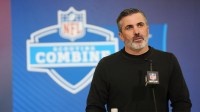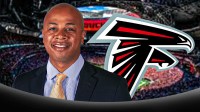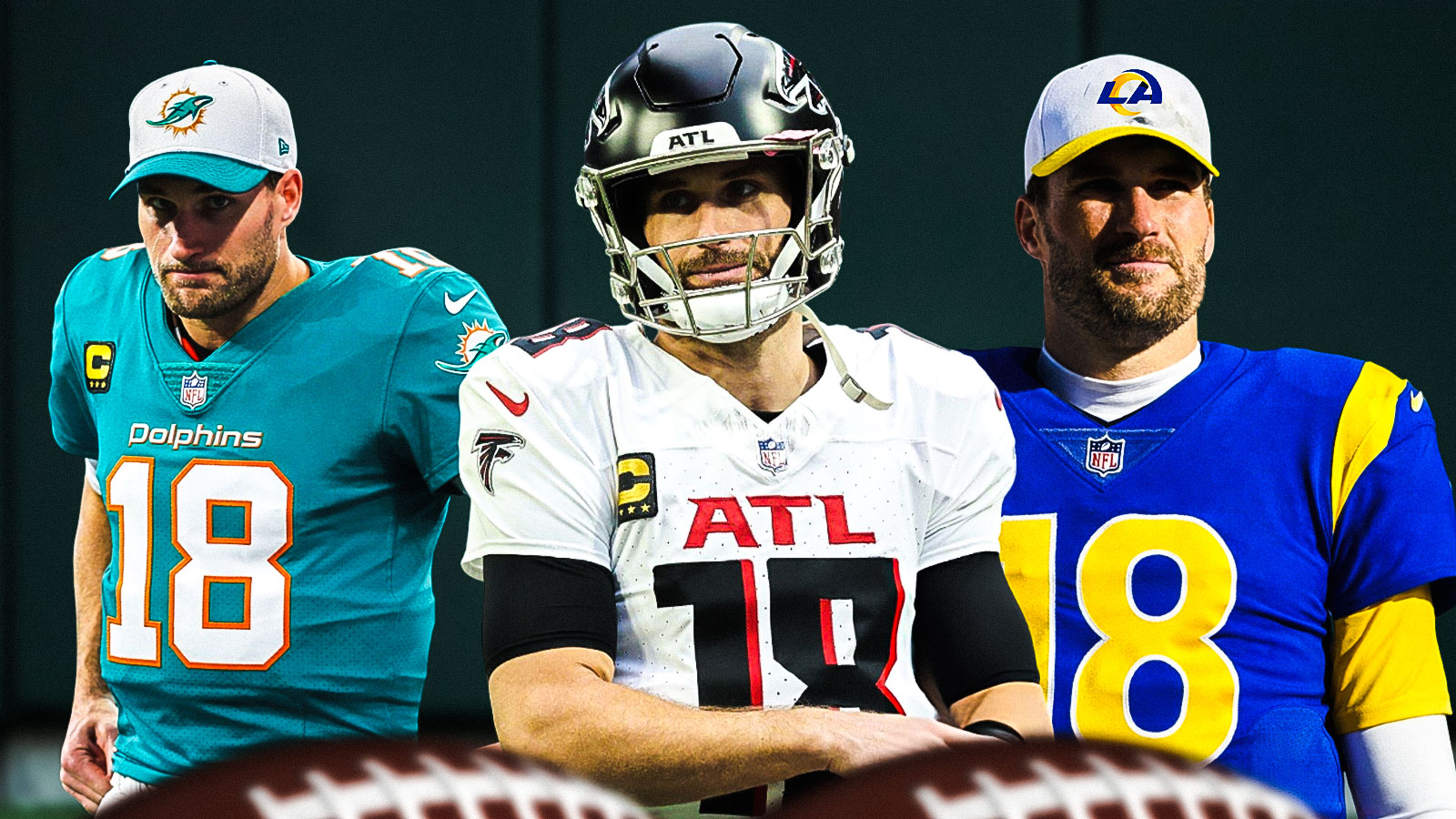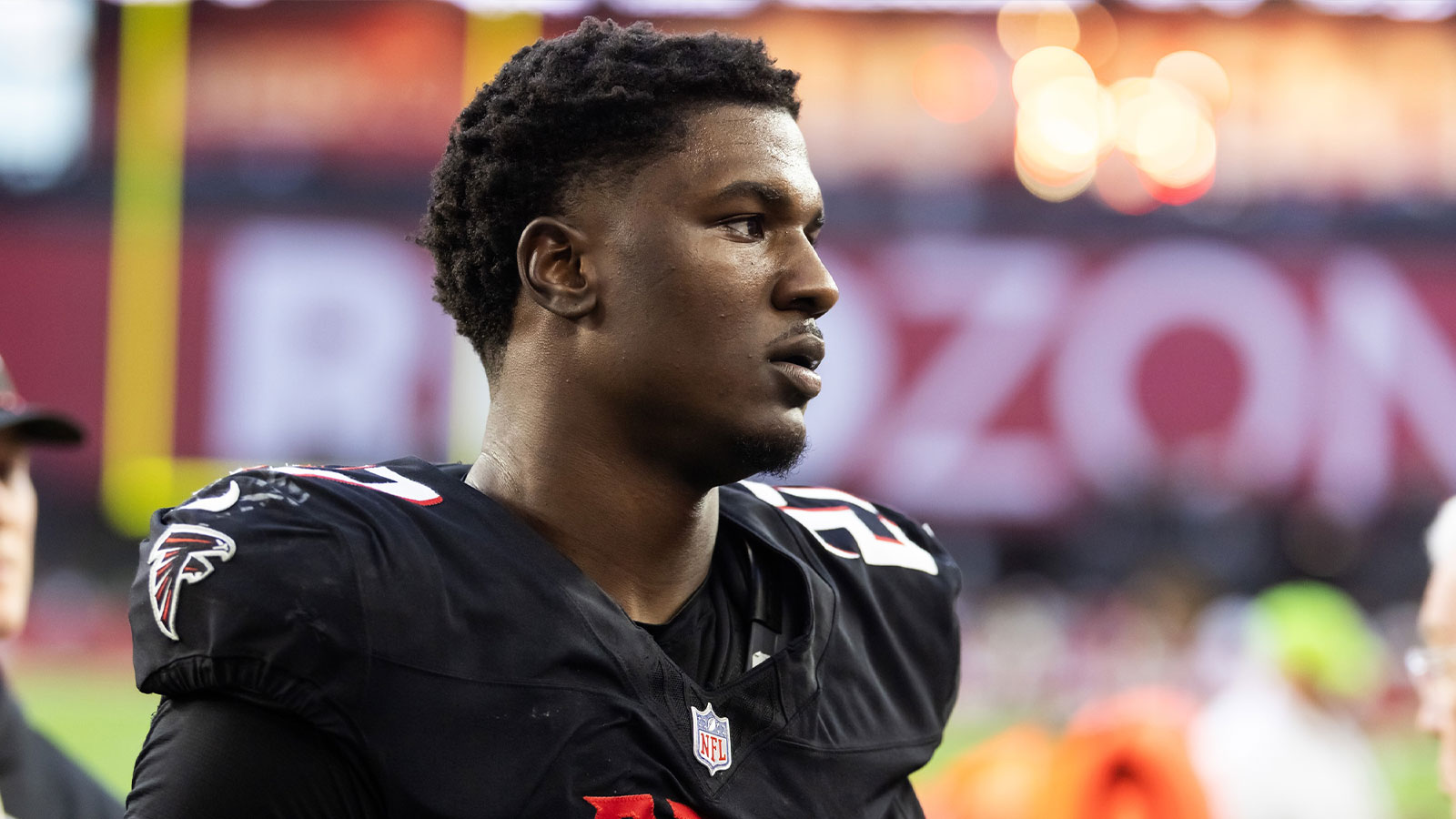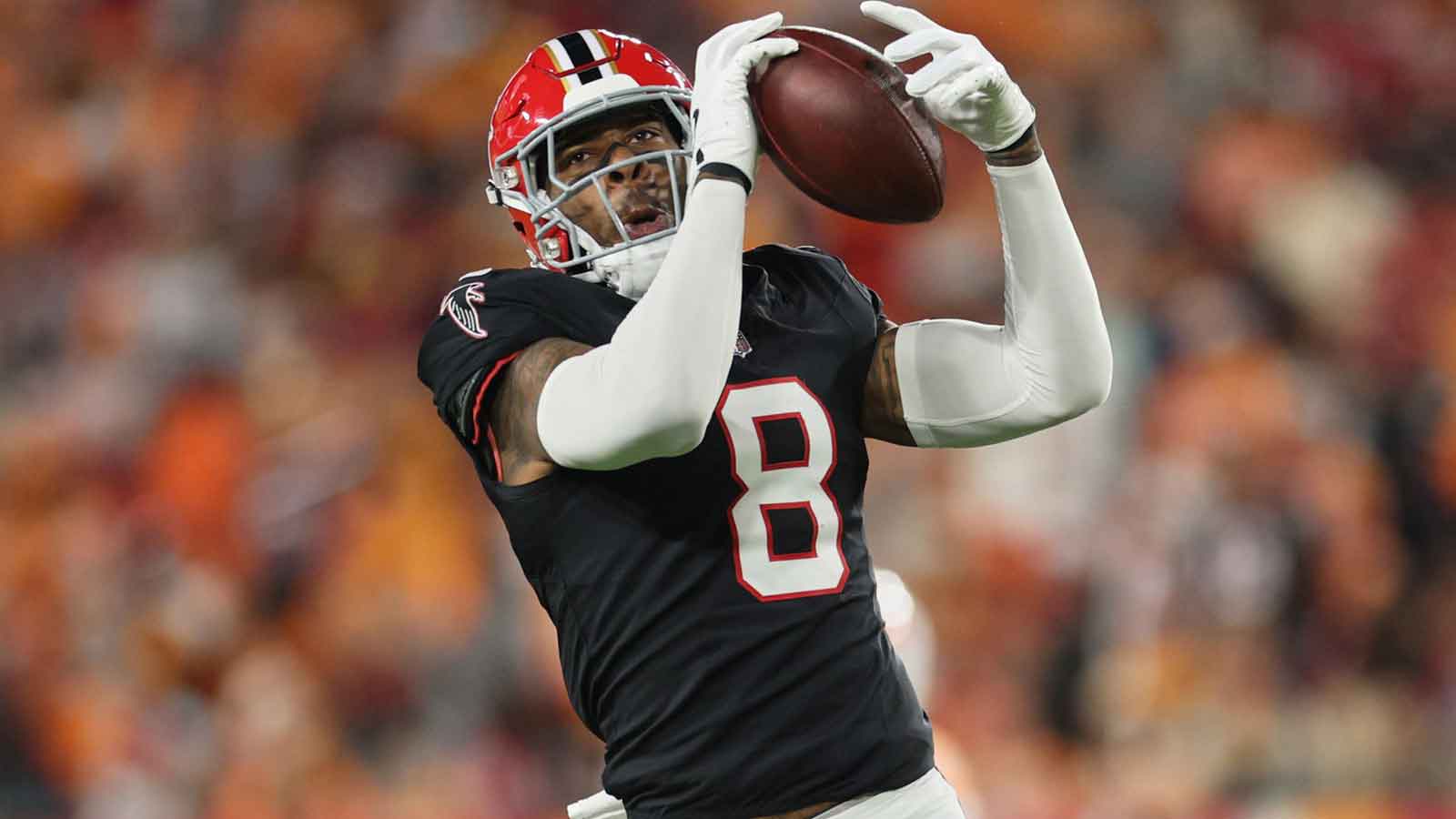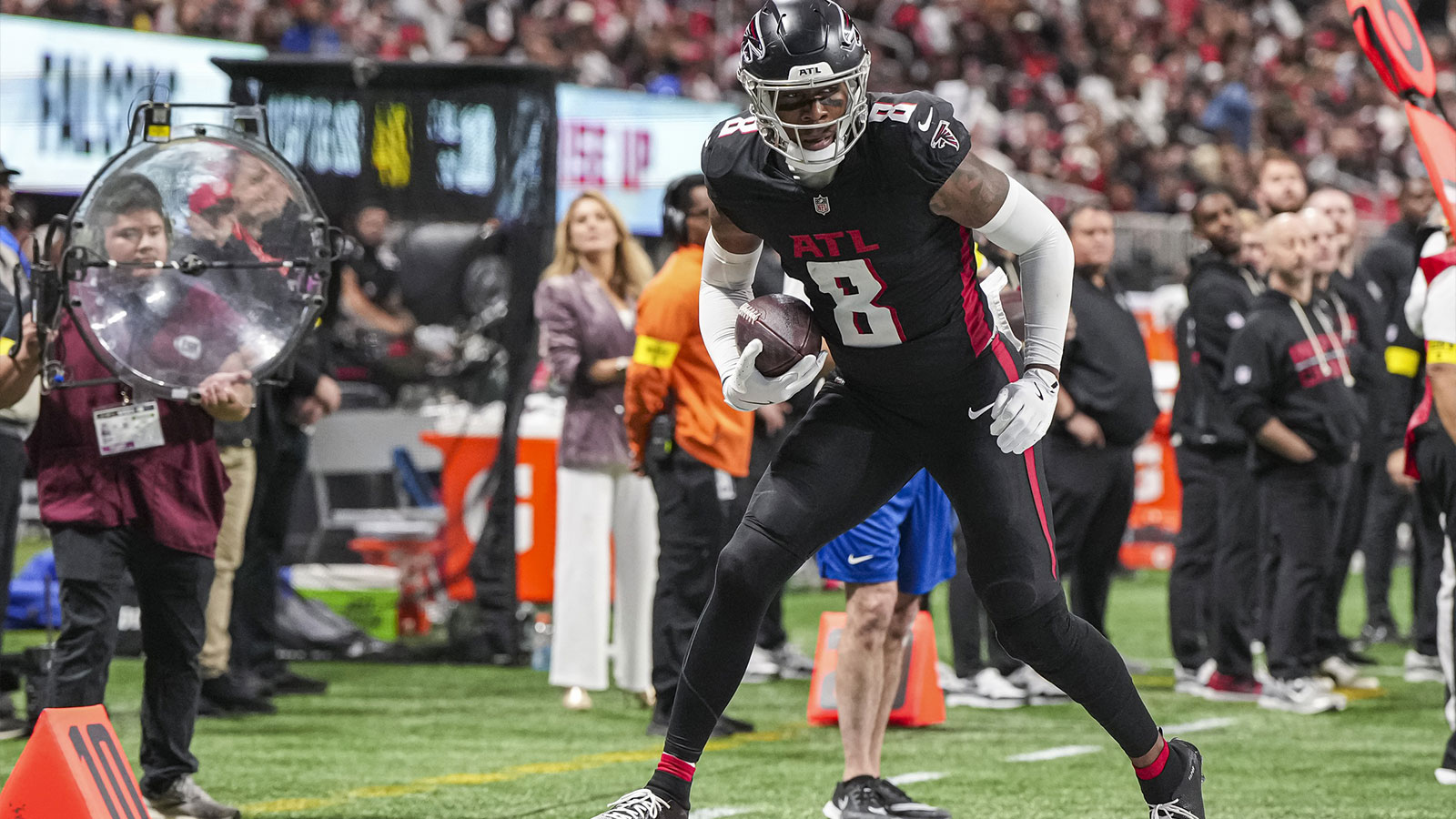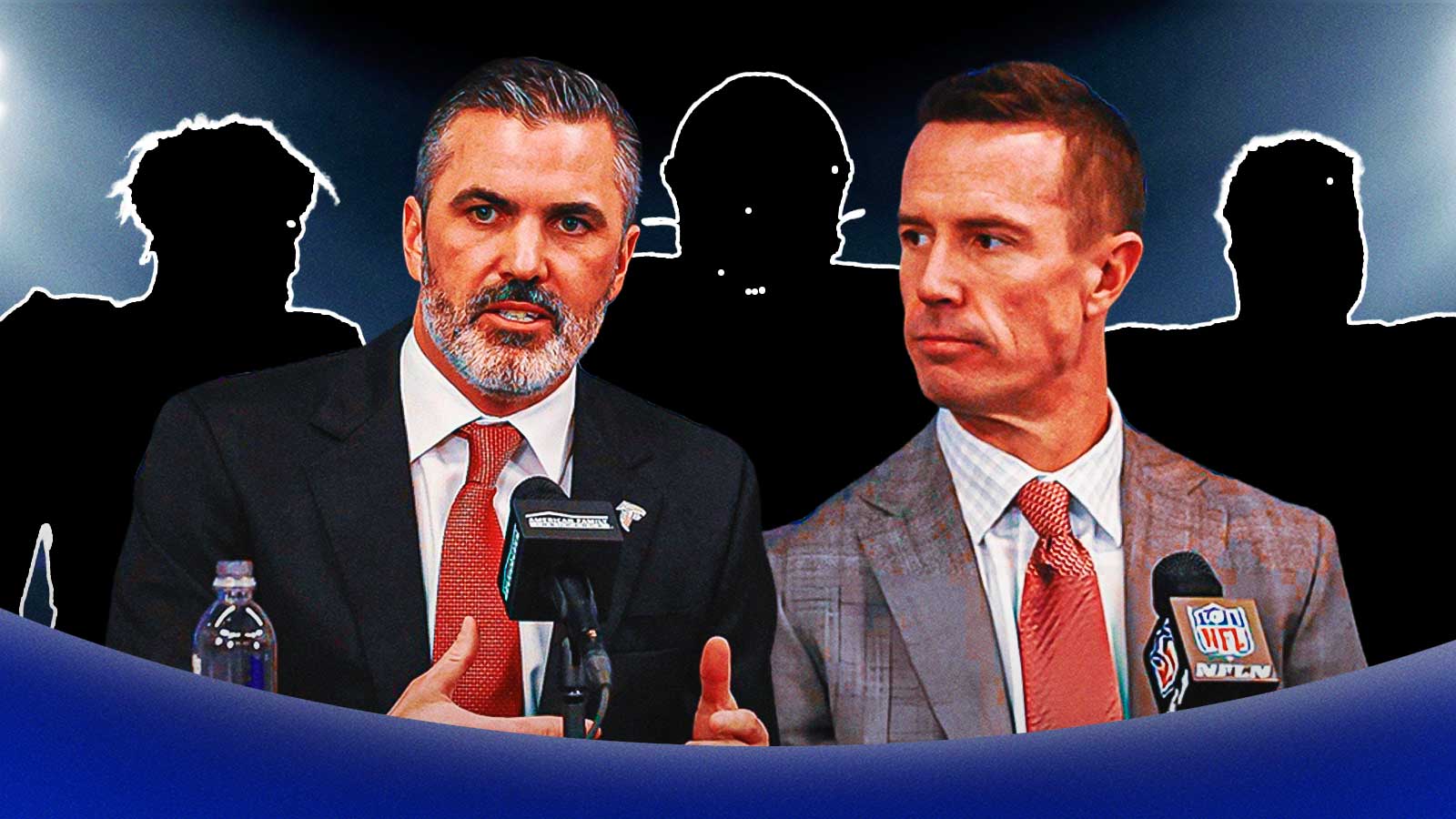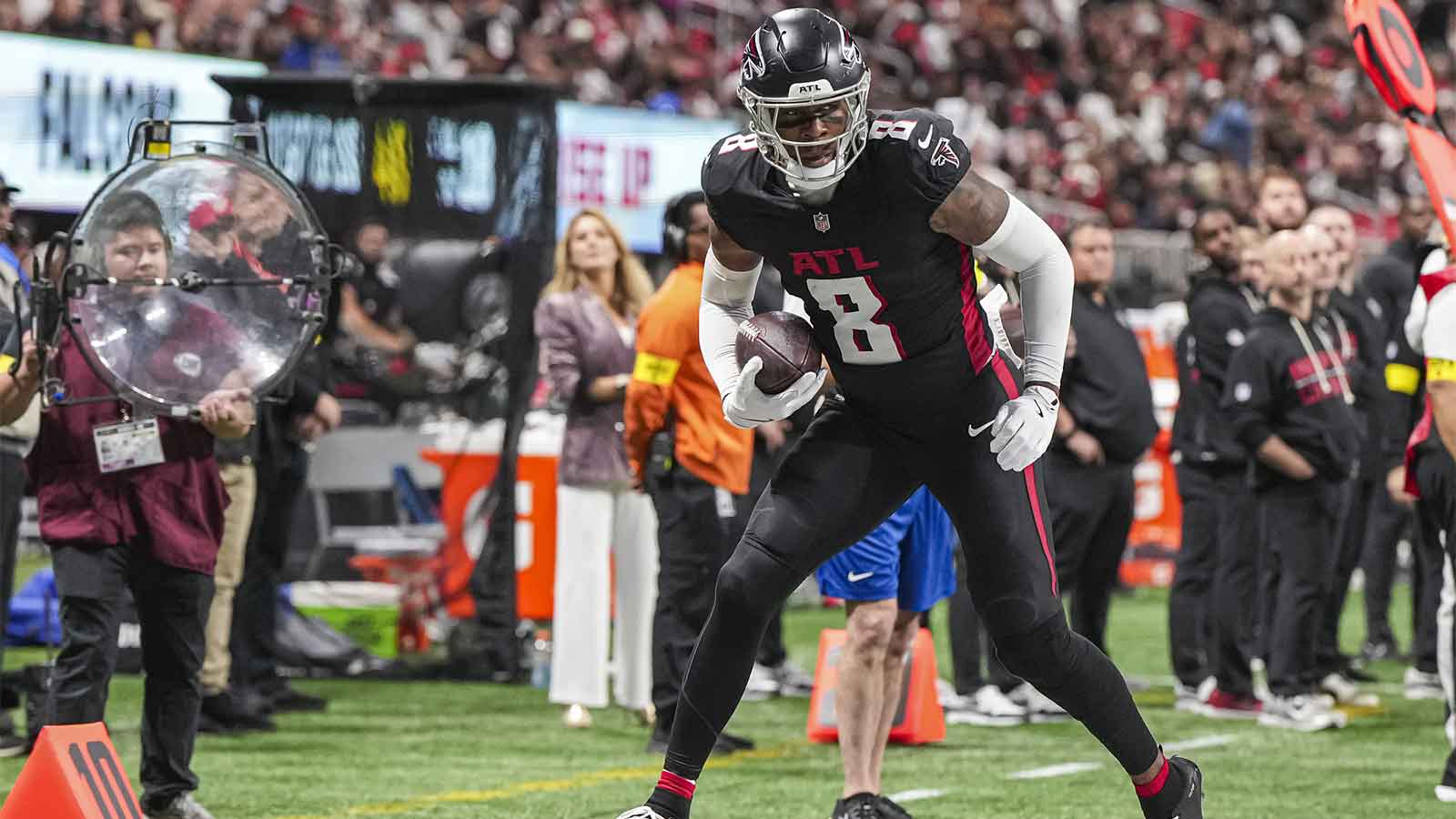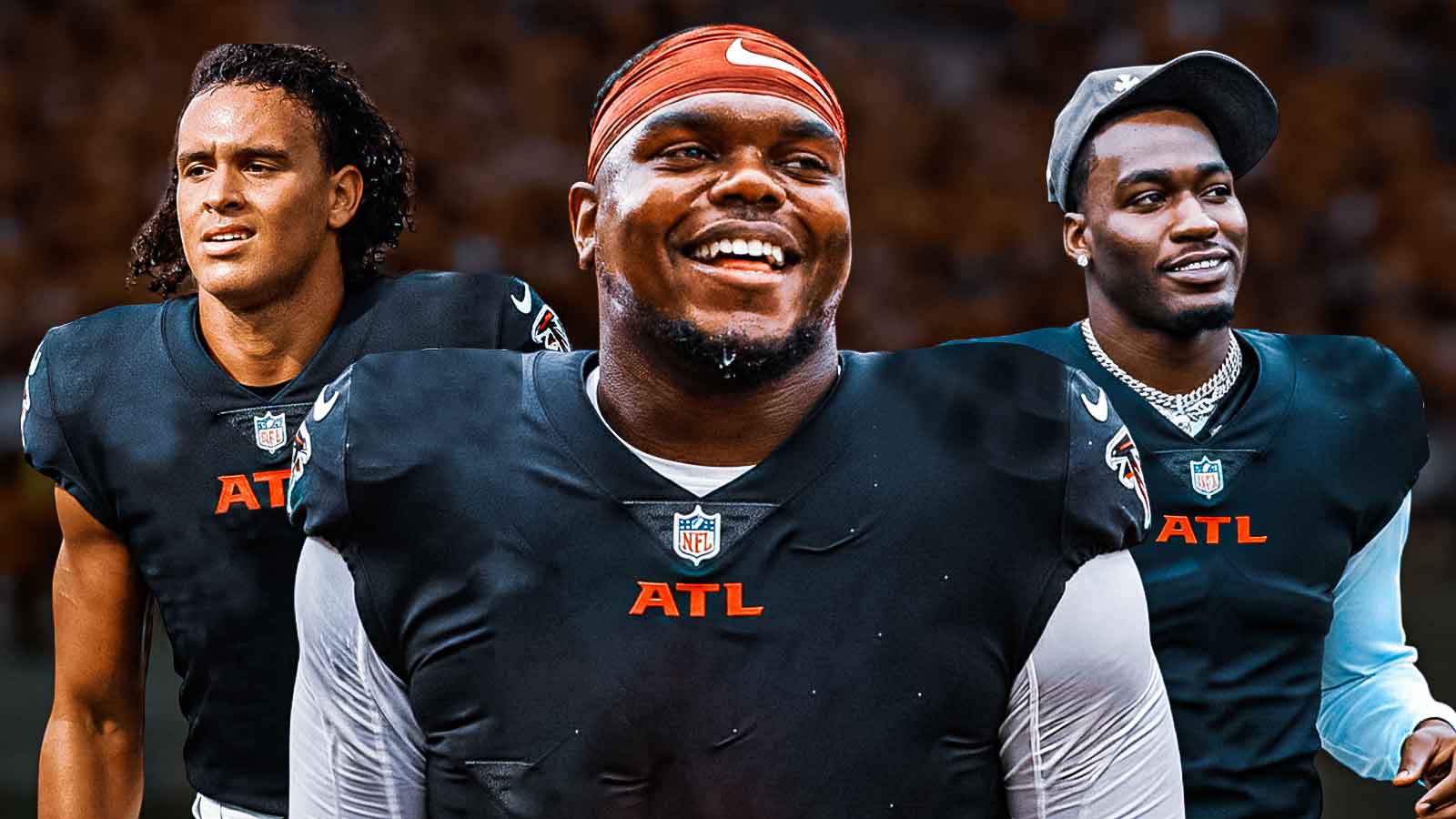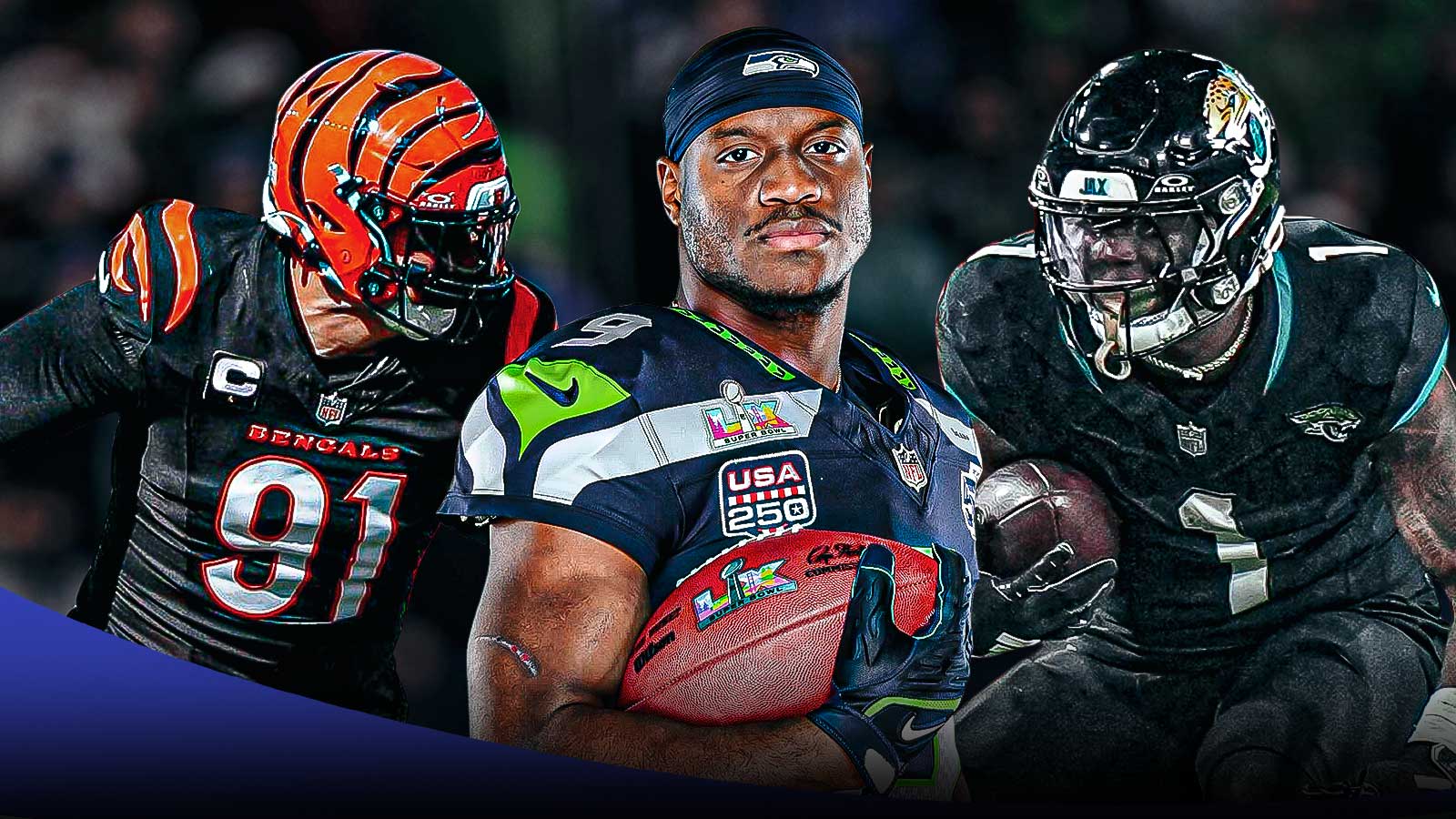The Atlanta Falcons extended their losing streak to three games after they fell to division rivals the New Orleans Saints, 21-18, on the road in Week 15 of the 2022 NFL season. The Falcons tried to rally in the fourth quarter, but they fell short in the end. They slid to last place in the NFC South after this loss, but they are still within striking distance of the top spot after the Tampa Bay Buccaneers also lost this week. Here we'll discuss the four Falcons most to blame for their Week 15 loss vs. the Saints.
During the game, Atlanta was trailing by a field goal and had the opportunity to score with less than three minutes remaining. The team's quarterback, Desmond Ridder, threw the ball to Drake London for a first down on fourth-and-5, but Justin Evans from the opposing team punched the ball out of London's grasp and Bradley Robey caught it. That gave possession to New Orleans on their own 39-yard line. The Saints kept the ball until they were unable to convert on fourth-and-short in Atlanta territory with 9 seconds left. The game then ended on Ridder's scramble on the next two plays.
Prior to this game, the Falcons had lost four of their previous five games, and their starting quarterback, Marcus Mariota, had been struggling with a knee injury. As a result, Atlanta's coach, Arthur Smith, announced that Ridder would be the new starting quarterback and Mariota would be placed on injured reserve. Needless to say, this debut for Ridder wasn't what he was hoping for.
For now, let us look at the four Falcons most to blame for their Week 15 loss vs. the Saints.
Final from New Orleans
— Atlanta Falcons (@AtlantaFalcons) December 18, 2022
4. Falcons Defense
Before the game even kicked off the Falcons defense already faced some challenges. Defensive coordinator Dean Pees was injured during pregame warmups and had to be taken to the hospital following a collision with a player. This left linebackers coach Frank Bush to step in as defensive coordinator.
The Falcons defense struggled on the Saints' first two drives, allowing two easy touchdown passes. However, they did improve from that point on and helped keep the Falcons in the game. Overall, the game was a close one, but the Falcons ultimately came up short in their attempt to tie the game late. Losing coach Pees likely threw the early play-calling off a bit, and perhaps they would have made a stronger stand had he not been injured pre-game.
3. WR Drake London
During this game against the Saints, rookie wide receiver Drake London actually had a strong performance. To illustrate, he caught four passes for 41 yards in the first half alone. His quarterback, Desmond Ridder, seemed to have a good connection with him and targeted him frequently, resulting in a total of seven catches on 11 targets for 70 receiving yards.
However, London did have a crucial fumble on a fourth-down conversion that was recovered by the Saints. For sure, that was a disappointing moment for him and the team. That's the only reason he's on this list.
Despite this, the chemistry between London and Ridder is a positive sign for the Falcons' offense. London has seen double-digit targets in three games this season, totaling 21 receptions for 251 yards and one touchdown. It is likely that he will continue to be a leading target for the team, but his overall production may be limited due to the Falcons' struggling offense.
2. RB Cordarrelle Patterson
During this tight loss to the Saints, Falcons running back Cordarrelle Patterson gained 52 yards and scored a touchdown on 14 carries. He also caught one pass for no yards out of three targets. Tyler Allgeier, another Falcons running back, had 18 touches overall compared to 17 for Patterson. The rookie basically had a better performance than the seasoned veteran.
The Falcons are currently struggling in the postseason race, which may allow Allgeier to see more playing time in the future over Patterson. Both running backs' potential has been limited due to a timeshare arrangement, and Patterson's production, in particular, has been subpar this season.
1. QB Desmond Ridder
Desmond Ridder's first start as quarterback did not go as well as he or the team may have hoped. His first play of the game was a deep shot that was unsuccessful. This proved to be a metaphor for the rest of his afternoon. Ridder struggled to hit his targets accurately. Consequently, the Falcons' offense, which has generally been competent this season, looked disorganized with him under center. We did not see a consistent flow to the offense. It was actually the performance of fellow rookie Allgeier that helped keep the team in the game. Overall, Ridder completed just 50 percent of his passes for 97 yards, with no touchdowns or interceptions. He also took four sacks and added 38 rushing yards on six attempts.
Of course, patience would be necessary in terms of viewing Ridder's first start, and it seems that this patience may be even more important than initially expected. The Falcons want to assess what they have in Ridder as a potential quarterback moving forward, but his debut may have left more questions than answers. While the numbers do not look promising, it is too early to make any definitive conclusions about Ridder's potential. He did show some poise in the latter part of the game, and it will be important to see how he develops and improves in future games.






